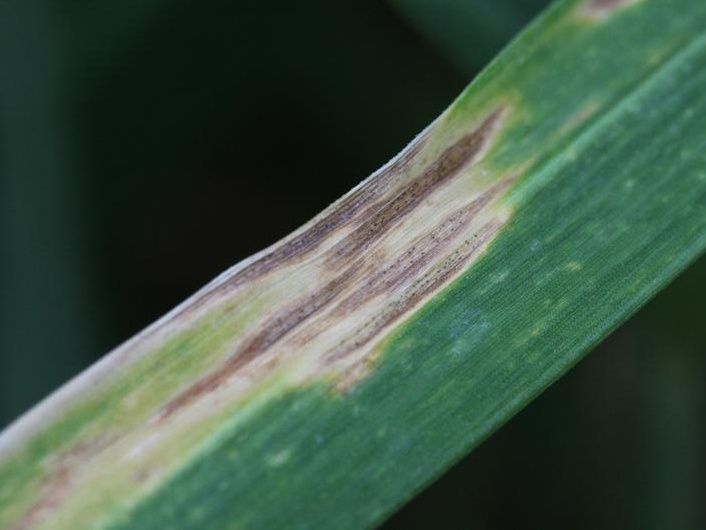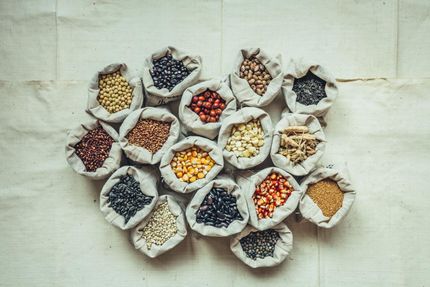Fungal infections of crops threaten global food security
In Nature, Eva Stukenbrock from Kiel University and Sarah Gurr from University of Exeter warn of the devastating consequences of fungal diseases
Advertisement
Worldwide, growers lose between 10 and 23 per cent of their crops to fungal infection each year, despite widespread use of antifungals. An additional 10-20 per cent post harvest. In a commentary in Nature, academics predict those figures are projected to worsen as global warming means fungal infections are steadily moving polewards, meaning more countries are likely to see a higher prevalence of fungal infections damaging harvests. Growers have already reported wheat stem rust infections — which normally occur in the tropics — in Ireland and England. The experts also warn that tolerance to higher temperatures in fungi could increase the likelihood of opportunistic soil-dwelling pathogens to hop hosts, and infect animals or humans
Across the world, food security is expected to encounter unprecedented challenges as rising populations mean more demand. Across the five most important calorie crops of rice, wheat, maize (corn), soya beans and potatoes, fungal infections cause losses which equate to enough food to provide some 600 million to 4,000 million people with 2,000 calories every day for one year.
Commentary co-author Eva Stukenbrock, professor and head of the Environmental Genomics group at Kiel University, Germany, and fellow of the Canadian Institute for Advanced Research (CIFAR), said: “As our global population is projected to soar, humanity is facing unprecedented challenges to food production. We’re already seeing massive crop losses to fungal infection, which could sustain millions of people each year. This worrying trend may only worsen as a warming world makes fungal infections more prevalent in European crops, and as they continue to develop resistance to antifungals. This will be catastrophic for developing countries and will have a major impact in the Western world, too.”
The commentary highlights a “perfect storm” which is causing fungal infections to spread rapidly. Among the factors is the fact that fungi are incredibly resilient, remaining viable in soil for up to 40 years, with airborne spores that can travel between continents. Added to this, they are extremely adaptable, with “phenomenal” genetic diversity between and among species. Modern farming practices entail vast areas of genetically uniform crops, which provide the ideal feeding and breeding grounds for such a prolific and fast-evolving group of organisms. They are also well equipped to evolve beyond traditional means to control their spread. The increasingly widespread use of antifungal treatments that target a single fungal cellular process means fungi can evolve resistance to these fungicides, so that they are no longer effective. This forces farmers to use ever-higher concentrations of fungicide in a bid to control infection, which can accelerate the pace of resistance developing.
However, there is some cause for hope. In 2020, a team the University of Exeter discovered a new chemistry which could pave the way for a new type of antifungal targets several different mechanisms, meaning it is much harder for fungi to develop resistance. Farming practices may also hold the key to change, after a study in Denmark showed promise by planting seed mixtures which carry a range of genes which are resistant to fungal infection. Technology may also prove crucial, with AI, citizen science and remote sensing tools such as drones allowing for early detection and control of outbreaks.
Overall, the authors argue that protecting the world’s crops from fungal disease will require a far more unified approach, bringing together farmers, the agricultural industry, plant breeders, biologists, governments, policymakers and funders.
Professor Sarah Gurr, Chair in Food Security at the University of Exeter and co-authored of the report concluded: “Fungal infections are threatening some of our most important crops, from potatoes to grains and bananas. We are already seeing massive losses, and this threatens to become a global catastrophe in light of population growth. Recently, we’ve seen the world unite over the human health threat posed by covid. We now urgently need a globally united approach to tackling fungal infection, with more investment, from governments, philanthropic organizations and private companies, to build on the seeds of hope and stop this developing into a global catastrophe which will see people starve.”

Typical septoria symptoms on wheat leaf produced by the ascomycete fungus Zymoseptoria tritici.
Dr. Janine Haueisen, Uni Kiel





















































